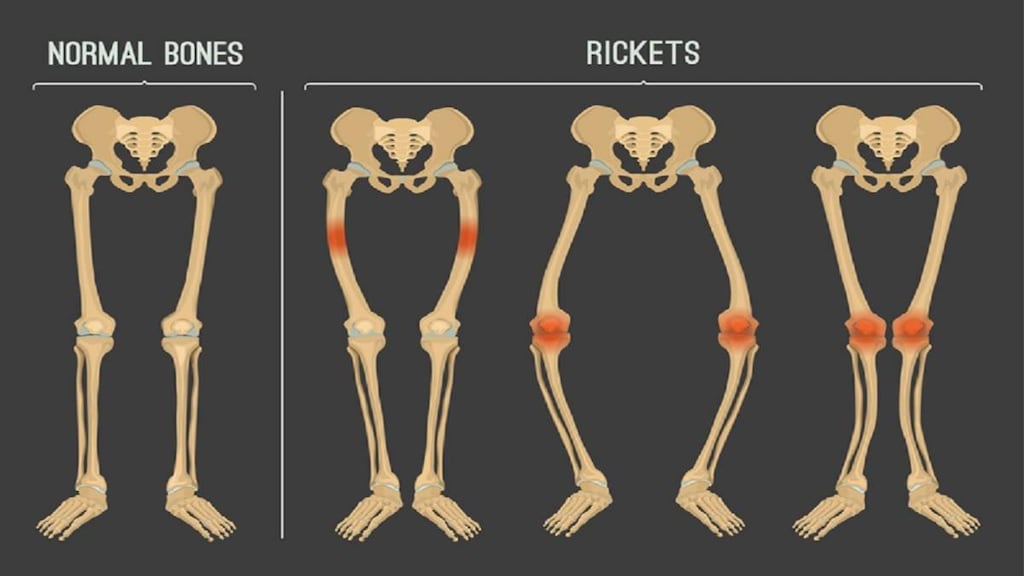
What is rickets?
Rickets is a condition caused by a lack of vitamin D that affects the bones of children, making them weak and soft and stunting growth. In severe cases skeletal deformities may be present.
What are the symptoms of rickets?
Symptoms of rickets may include:
- Bowed legs or knock knees
- Breastbone projection
- Delayed growth
- Delayed movement
- Dental defects
- Easy fracturing
- Muscle weakness
- Pain in the spine, pelvis or legs
- Spine curvature
- Thickened wrists or ankles.
What causes rickets?
The most common cause of rickets is prolonged vitamin D deficiency. Rarely, inherited problems can cause rickets.
Vitamin D is necessary to help our bodies absorb calcium and phosphorus from food. A lack of vitamin D may be caused by:
- Lack of sunlight. Skin produces vitamin D when it is exposed to sunlight. Children with dark skin, or who spend little time outdoors, live at Northern latitudes, take medications such as those for epilepsy or HIV, or whose skin is not exposed to sunlight for long enough (for example, due to religious reasons) are at higher risk
- Lack of vitamin D in the diet (Vitamin D is found in fish oil, egg yolks, fatty fish such as salmon and mackerel, and often added to milk, cereal and some fruit juices)
- Poor absorption of vitamin D (may be due to celiac disease, cystic fibrosis, Inflammatory Bowel Disease, kidney problems)
- Babies born prematurely, to mothers who are vitamin D deficient during pregnancy, or exclusively breastfed
How are rickets treated?
Supplemental vitamin D added to the diet generally corrects the vitamin D deficiency or bone problems associated with Rickets. Some additional treatments may be necessary if there is an underlying causative health problem. Surgery may be required to correct any skeletal deformities.




